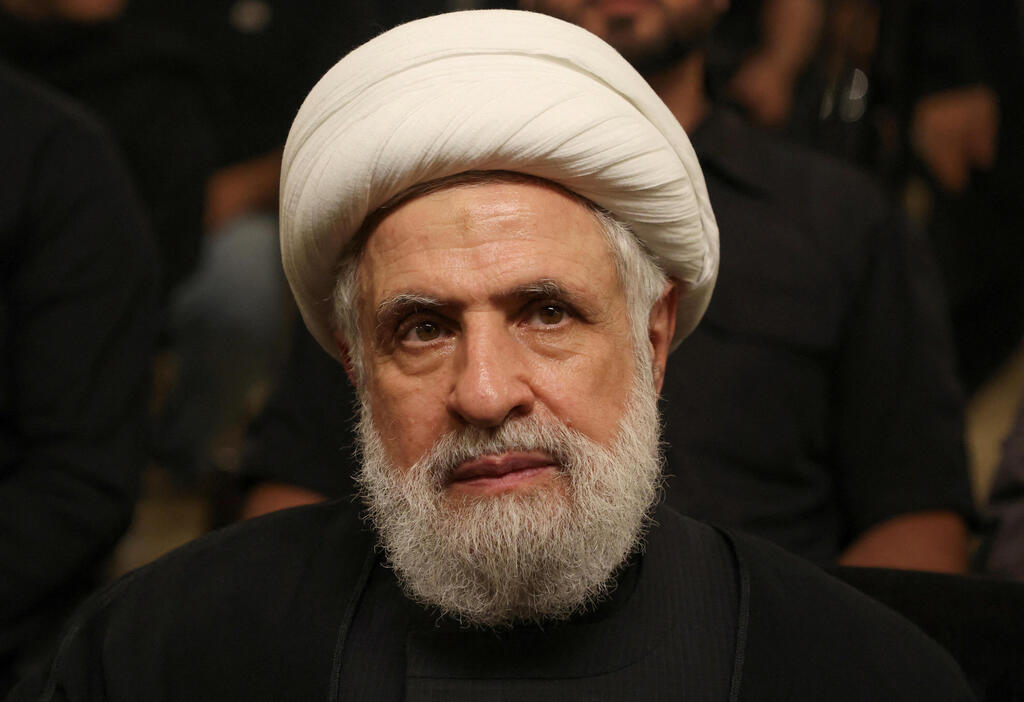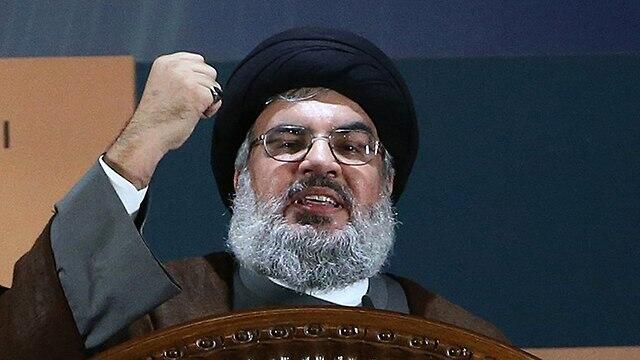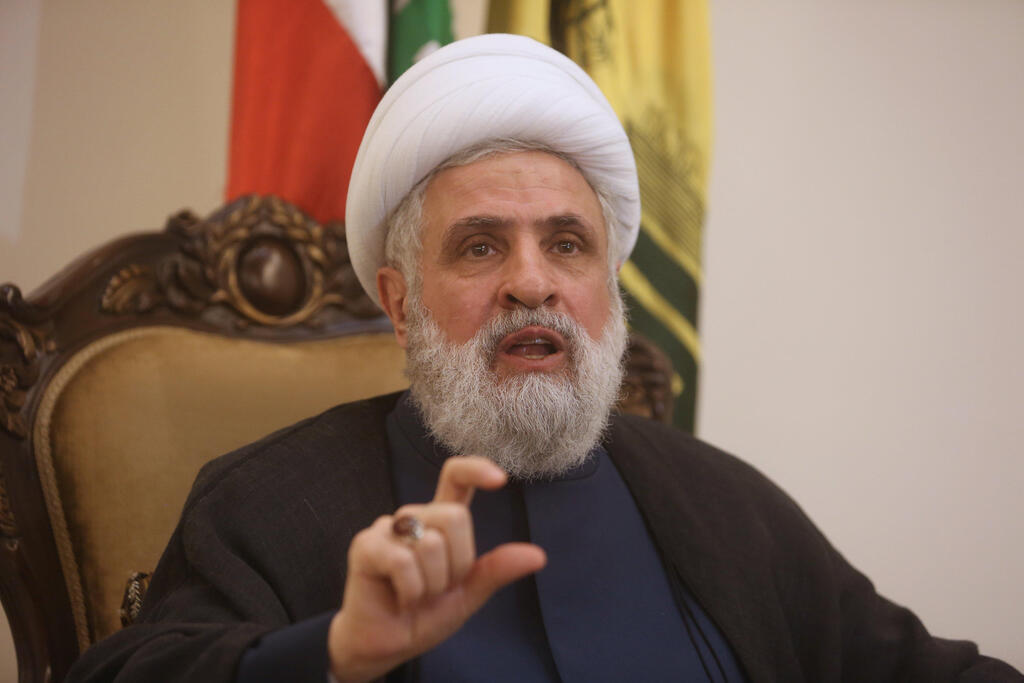Getting your Trinity Audio player ready...
Hezbollah officially named Naim Qassem as its new secretary-general on Tuesday. For 34 years, Qassem served as the deputy under the recently assassinated Hassan Nasrallah and his predecessor Abbas al-Musawi. Now, he steps into the limelight and into the thick of the conflict.
Qassem wasn't the first pick to succeed Nasrallah. However, following the assassination of Hashem Safieddine, who was set to be the next leader, Qassem emerged as the natural choice among the surviving top brass.
Since the assassination of Nasrallah in late September, Qassem has delivered three speeches for Hezbollah. His initial speech seemed unpolished; he appeared nervous, sweated a lot, and the background hinted he was in hiding. His third speech showed improvement, possibly due to feedback on his earlier appearances.
In his latest address, Qassem declared: "We are no longer in the phase of 'support' for Gaza but in direct confrontation with an Israeli war against us." He claimed this shift began with the operation to blow up pagers in Lebanon. He insisted the organization is still operational and promised a new Secretary-General would be appointed soon. It's unclear if he knew then that he would assume the role.
Naim Qassem has been a key figure in the terrorist organization for decades. Born in 1953 in the Al-Basta al-Tahta area of Beirut, his family hails from the Shiite-majority village of Qafar Fila in southern Lebanon. According to Asharq Al-Awsat, he is married with six children.
Qassem has held the position of Deputy Secretary-General since 1991, during the tenure of former Secretary-General Abbas al-Moussawi, who was assassinated in 1992 by Israel. He remained in the role after Nasrallah's appointment.
He began his political career with the Shiite Amal Movement in Lebanon, founded in 1974, and left in 1979 following the Iranian Revolution. Qassem participated in the meetings that led to Hezbollah's formation in 1982 and became one of its prominent spokesmen. He also served as the general coordinator for Hezbollah's parliamentary election campaigns since the organization first ran in 1992. Qassem studied under Shiite scholars in Lebanon while pursuing academic studies at the University of Lebanon in 1971, where he earned a bachelor's degree in chemistry. He completed his master's degree in chemistry in 1977.
Subsequently, Qassem worked as a high school teacher for six years. He helped establish the "Lebanese Union of Muslim Students" during his university years to spread Islamic ideas in the 1970s. Over the years, he also served on Hezbollah's Shura Council. In 2005, he authored a book on Hezbollah's history, offering a rare glimpse into the organization. About six years ago, the U.S. government designated Qassem as an "international terrorist," subjecting him to economic and business sanctions.
Earlier this month, a report from the Emirates, based on an Iranian source, claimed Qassem fled to Iran at the start of October, fearing assassination by Israel. According to the unverified report, he has been in Tehran since October 5. It was also alleged that he left Lebanon on an Iranian plane, accompanied by Abbas Araghchi, Tehran's foreign minister, first to Syria and then to Iran. The source claimed Qassem's last two speeches were actually delivered from Khamenei's homeland.
Report: Shura Council made the decision - not Tehran
The London-based Arabic newspaper Asharq Al-Awsat published an article about Hezbollah's Shura Council, suggesting that if it managed to convene, it indicates – according to sources close to the organization – that the council has regrouped after significant setbacks and can now hold meetings of senior Hezbollah leaders despite security risks. It was also suggested that if the council convened, it shows Tehran did not take over Hezbollah's political and military leadership after Nasrallah's assassination, contrary to rumors.
The paper noted that Hezbollah's organizational structure is divided into three main frameworks:
The first—the Secretary-General, who holds extensive powers
The second—the Shura Council, whose members head four organizational councils: the Jihad Council, the Legal Council, the Governmental and Parliamentary Work Council, and the Political Council
The third—the Executive Council (formerly led by Safi al-Din before his assassination). The Executive Council is Hezbollah's core, from which most organizational units branch out. Among the councils, the Shura Council is the most important.
The Shura Council includes seven members: the Secretary-General of Hezbollah, who is also the Chairman of the Shura Council, the Deputy Secretary-General of Hezbollah—Head of the Legal Council Mohammad Yazbak, Head of the Political Council Ibrahim Amin al-Sayyid, Head of the Executive Council—recently assassinated—Hashem Saffiedine, the political assistant to the Hezbollah Secretary-General Hussein Khalil, the head of the parliamentary branch and leader of Hezbollah's party in the Lebanese parliament, "Loyalty to the Resistance Bloc" (Hezbollah's political arm), Mohammad Raad.
With Qassem's appointment, two positions remain vacant in the Shura Council: the Deputy Secretary-General and Chairman of the Executive Council. Qassem Kassir, a political researcher interviewed by the newspaper, said a Deputy Secretary-General has not yet been appointed and that it is a crucial appointment, "a message from within and outside that Hezbollah is active and monitoring affairs." Other sources interviewed did not rule out that even if a deputy to the new Secretary-General is appointed, his identity will not be disclosed, as he would become a strategic target for Israel, similar to Naim Qassem, who wants Hezbollah to remain leaderless.
Get the Ynetnews app on your smartphone:





